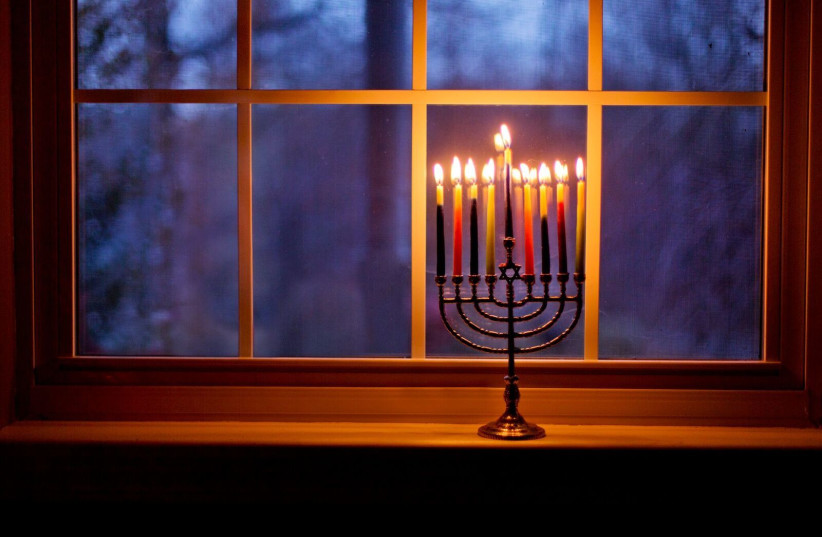Hanukkah, which started Sunday night, celebrates the Hasmonean victory over the Syrian-Greek Seleucids in the second century BCE; the rededication of the Temple in Jerusalem; and how the one cruse of untainted oil lasted eight days to keep the menorah in the Temple alight. The central themes are Jewish survival and banishing darkness. It’s one of those Jewish holidays that can be summed up as “They tried to kill us, we survived. Let’s eat.” (In this case, the food traditionally is oily donuts, latkes and sfenj.)
The story is recorded in the First and Second Books of Maccabees, which are not part of Tanach but are mentioned in rabbinic sources. It focuses on the sons of Mattathias (Matityahu), a kohen (member of the priestly caste) from Modi’in. This family, known as the Hasmoneans, was led by the third son, Judas Maccabeus, also known as Judah Maccabee. The Maccabees led the revolt against the Seleucid Empire under King Antiochus IV Epiphanes, which tried to forcibly Hellenize Jews and banned Jewish religious practices such as circumcision.
The Syrian-based Seleucids took control of Jerusalem and desecrated the Second Temple with pagan rituals in an effort to impose Greek-oriented culture and customs. The word Hanukkah means dedication and it is the purification and rededication of the ancient Temple in 164 BCE that lies at the heart of the story.
The holiday itself is a miracle. Jews are celebrating it everywhere around the globe, most of them marking it openly with Hanukkah candles lit in the windows of their homes and public candle-lighting ceremonies, often thanks to the work of Chabad. The idea of displaying the candles where they can be seen is a central concept whenever and wherever it is safe to do so.
A special feeling in Israel

In Israel, in particular, the Festival of Lights has a special feel to it. Even in times of increased tension between religious, ultra-Orthodox and secular Jews, this is a holiday that is celebrated by all. There is something uplifting about seeing homes in both religious and nonreligious neighborhoods and towns with hanukkiot shedding light from windows or outside front doors. There is no argument about the celebration of the holiday itself. This is perhaps in part because there is no clash between religious restrictions and observing the holiday.
There are special activities for children (who are on school vacation) and it is a joyous time. There are many customs associated with the holiday: One of them is playing with the s’vivon, the four-sided Hanukkah spinning top or dreidel. On each side is the first letter of the phrase: “Nes gadol haya po” or “Nes gadol haya sham” – a great miracle took place here/there, depending on whether the player is in Israel or the Diaspora. Another tradition is giving children Hanukkah money (referred to as Hanukkah gelt in Yiddish), often in the form of chocolate coins.
There is a tendency abroad to think of Hanukkah merely as a festival that roughly coincides with Christmas, the main difference being that Hanukkah presents are traditionally given on each of the eight nights as opposed to one night. This, of course, is a mistake. Christmas is the ultimate Christian holiday, celebrating the birth of Jesus. The Hanukkah story took place nearly 200 years before that and is the story of Jewish survival against the odds. The blessings recited at candle-lighting include praising God “who performed miracles for our forefathers in those days, at this time.”
Today, when, sadly there are still those who want to erase Jewish and Israeli ties to Jerusalem, Hanukkah serves as a reminder of how deep those ties to the ancient Temple are. It is also a reminder that even outnumbered, the Jews did not give up on that bond.
Hanukkah is a beautiful holiday with lovely traditions. May it continue to bring people together, to celebrate the triumph of good over evil, to shed and spread light.
And in these times of polarization, both here in Israel and among the Diaspora, we should ask for another blessing and miracle: That we maintain a sense of unity not just this week but beyond the eight days of the holiday.
